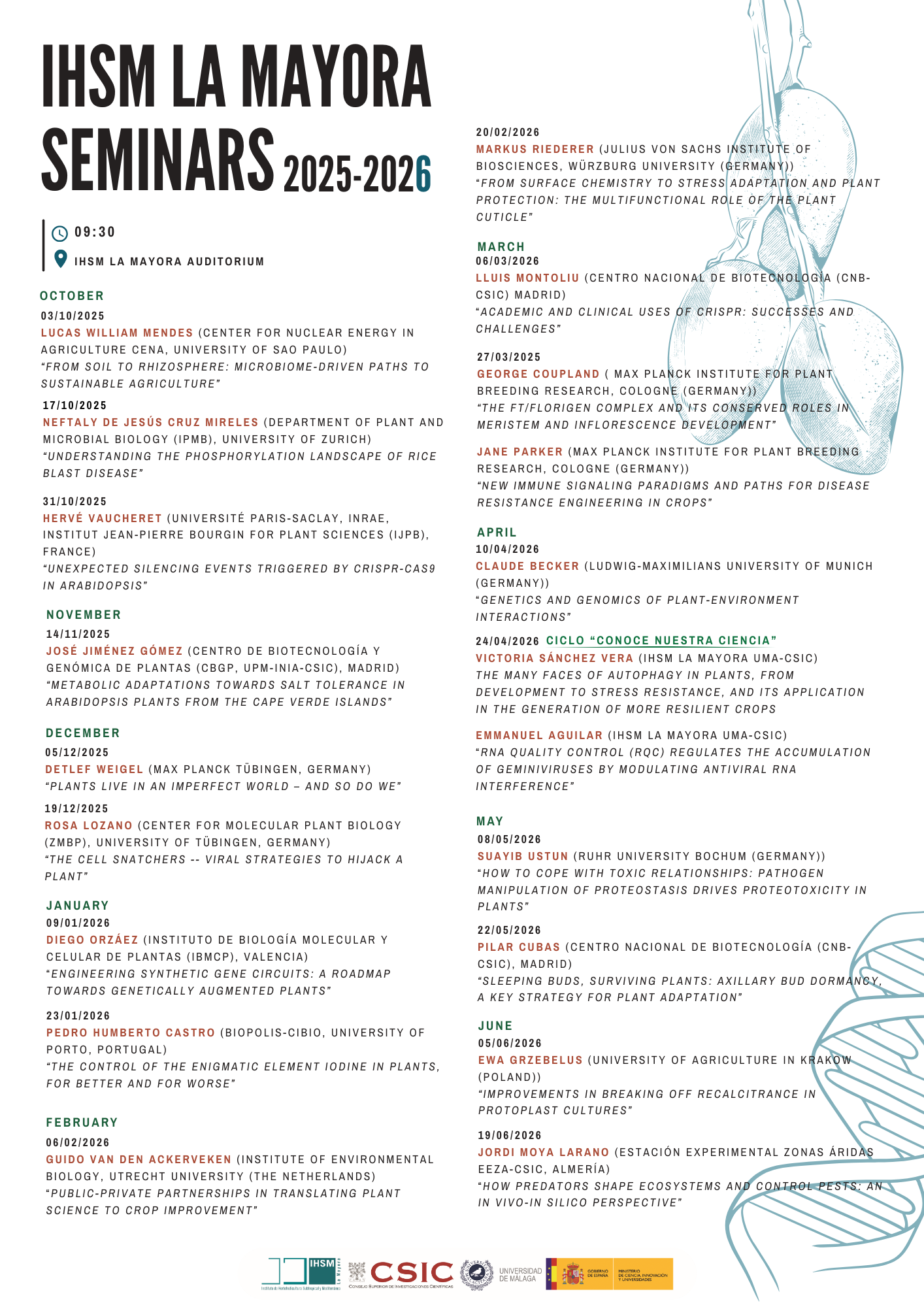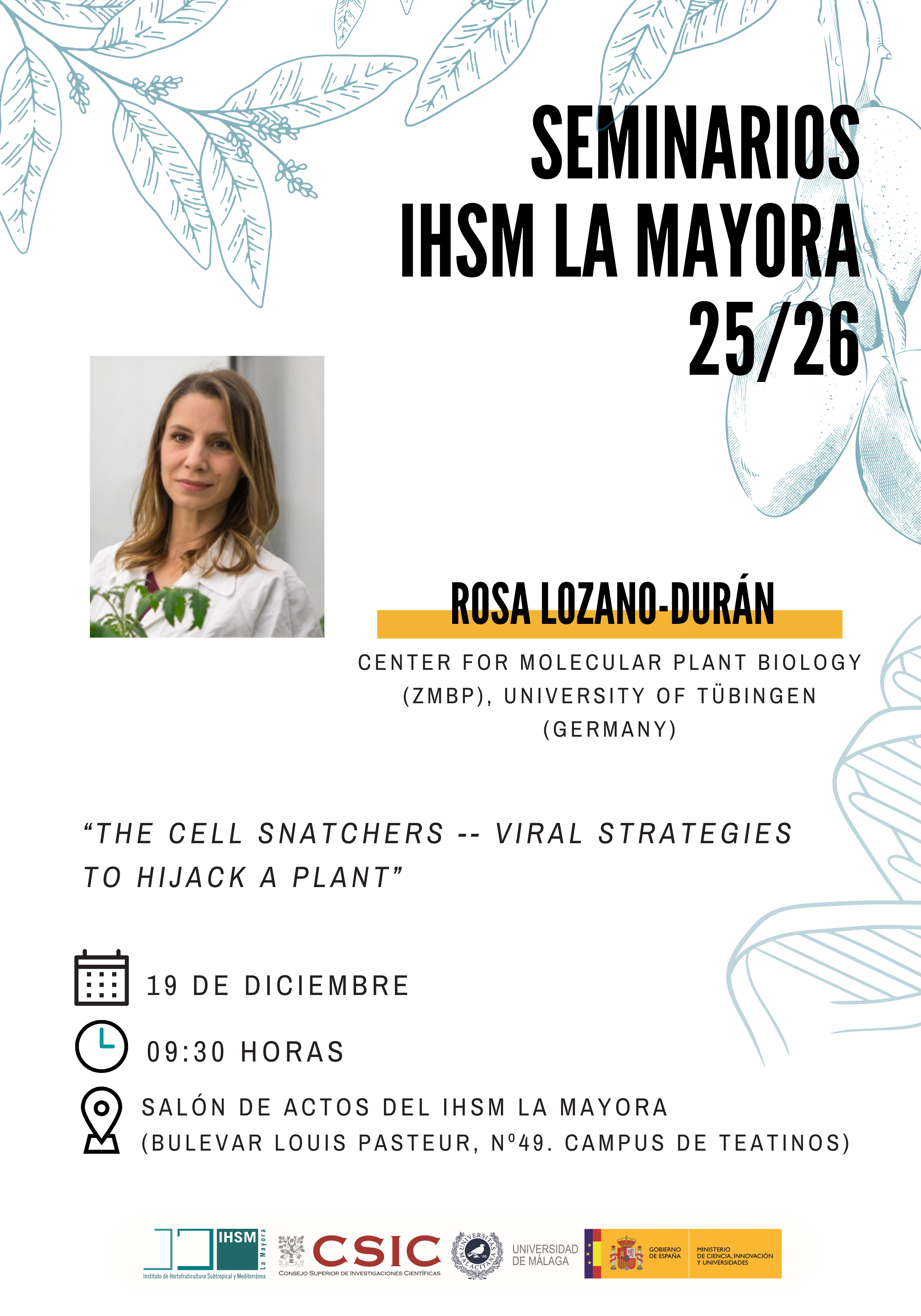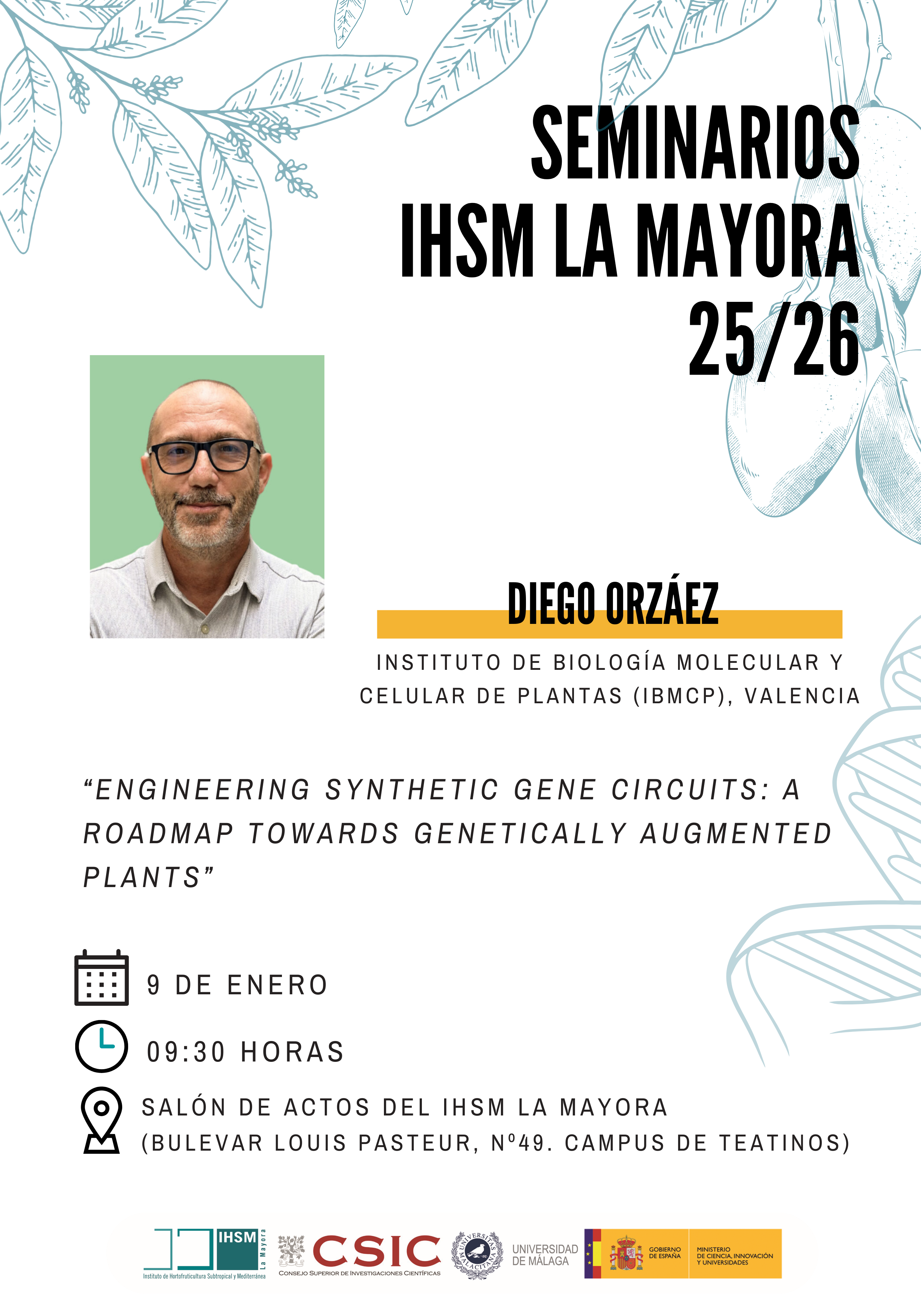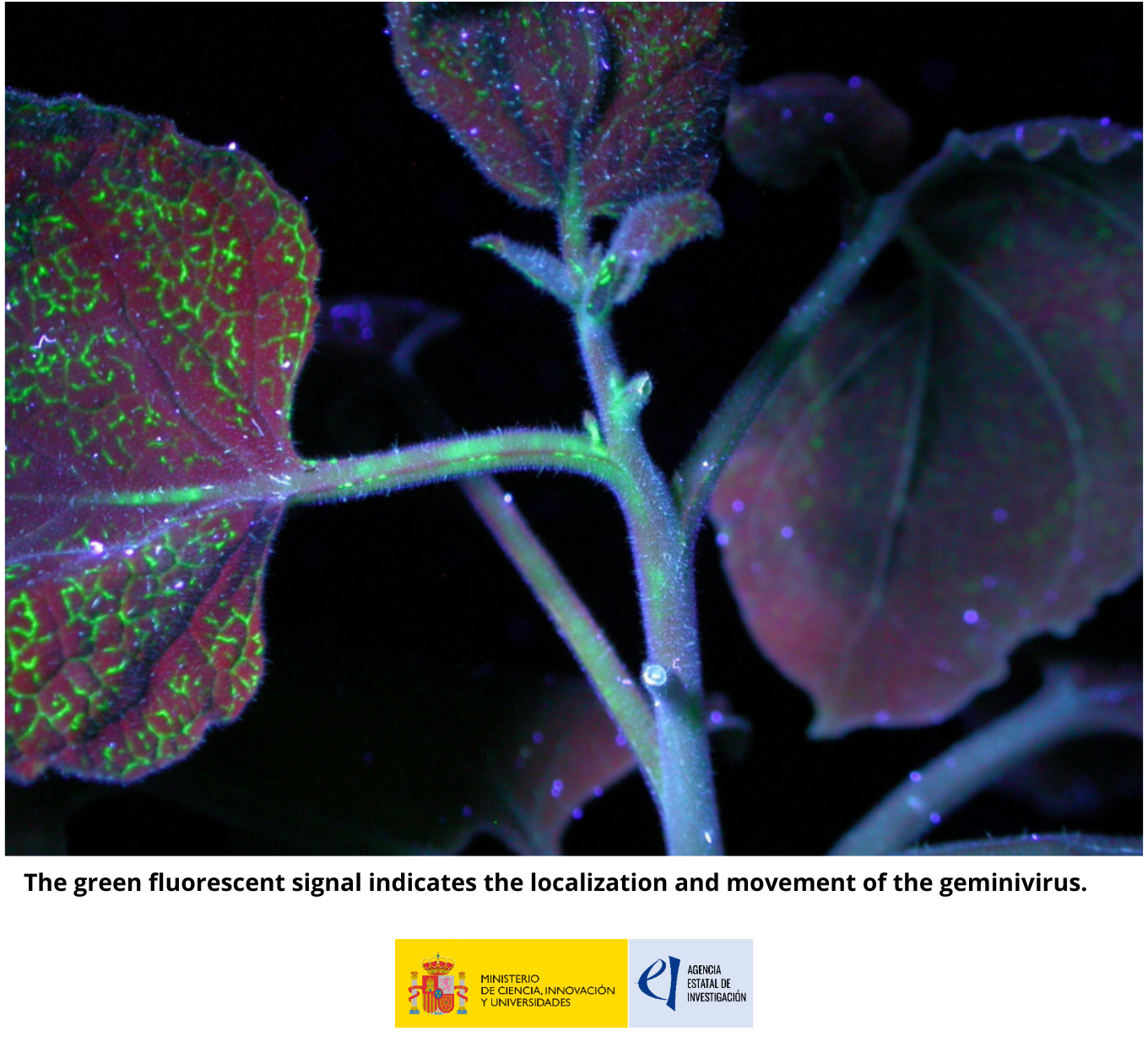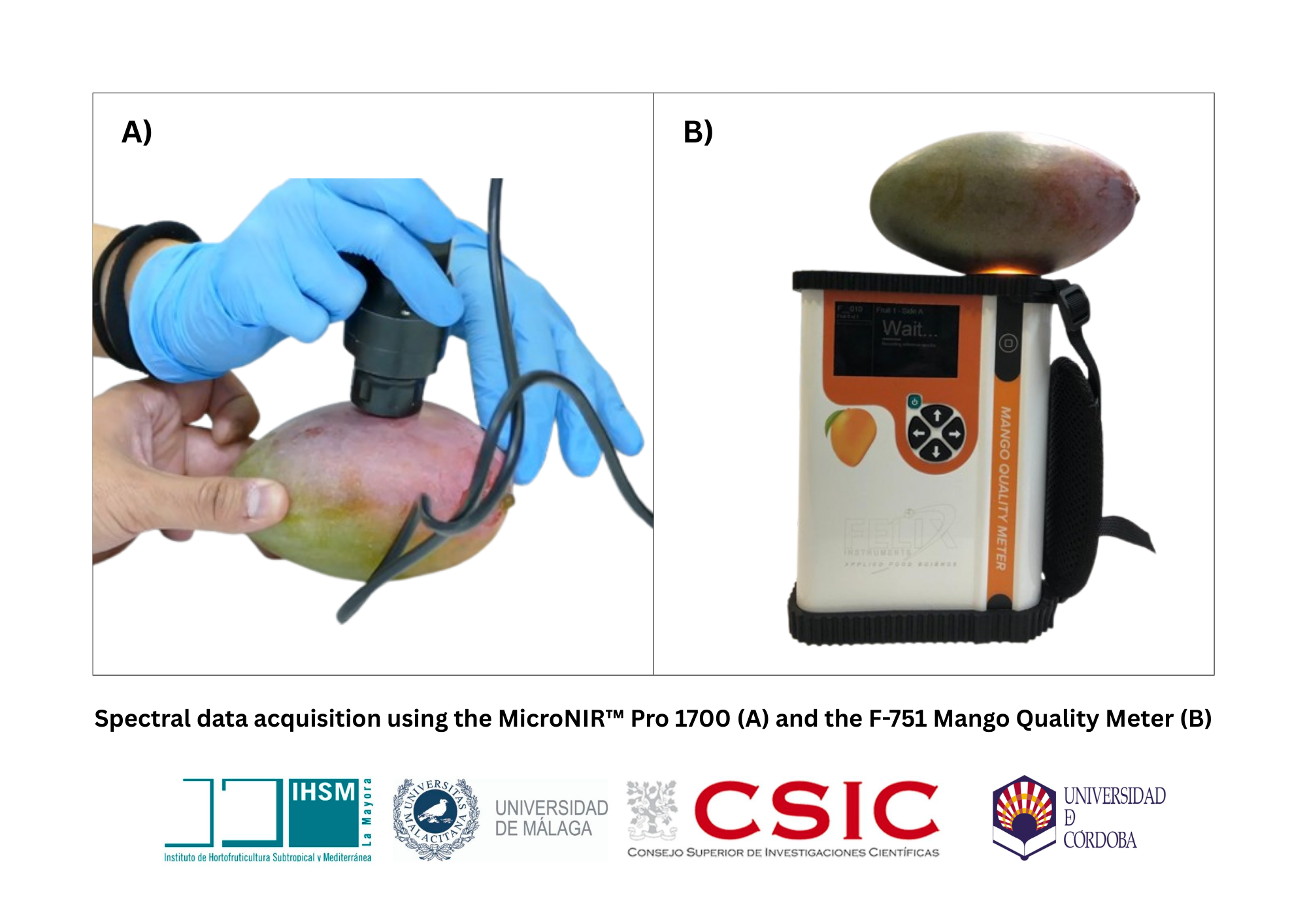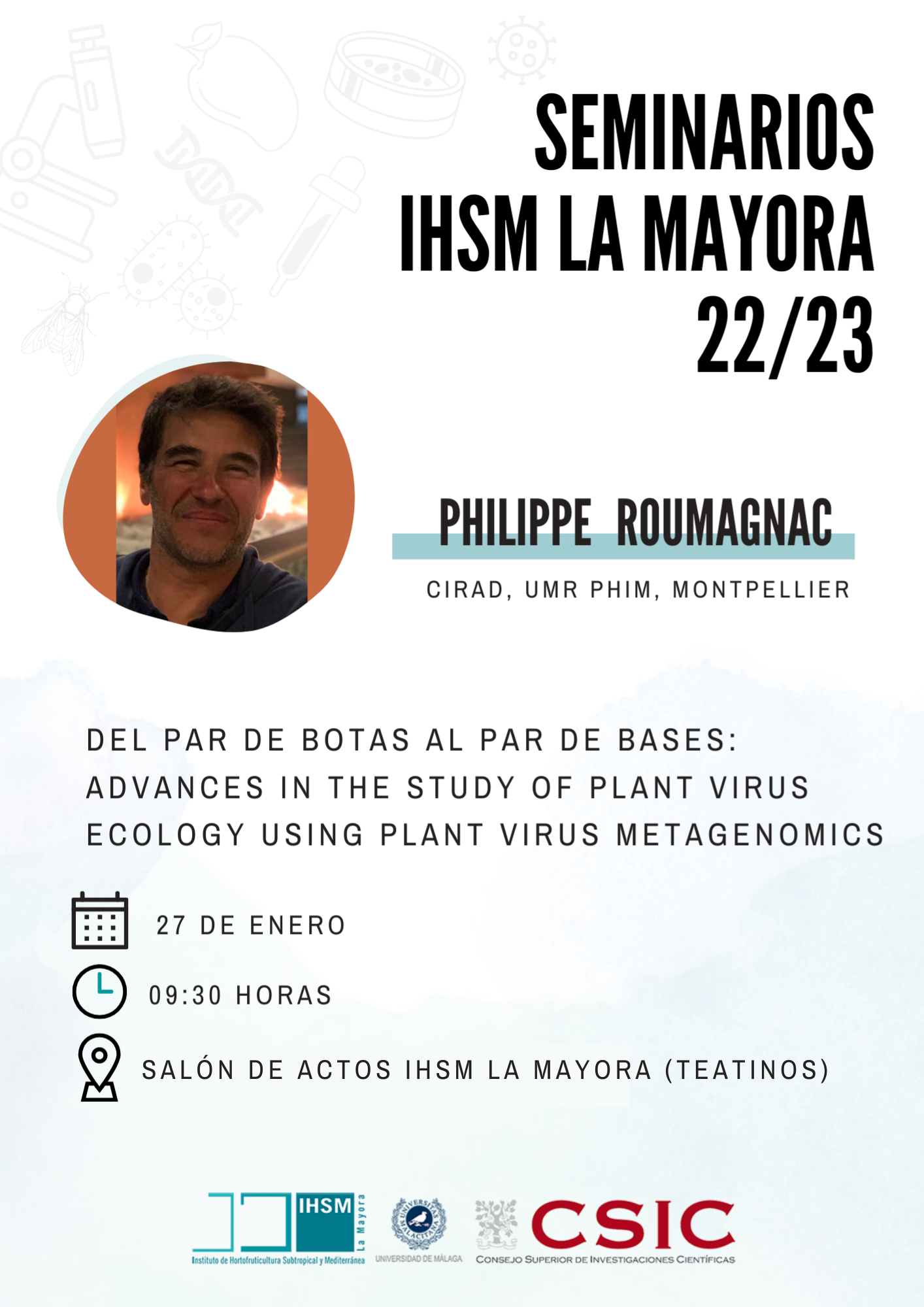
Seminarios IHSM La Mayora - Philippe Roumagnac (CIRAD-UMR PHIM)
Del par de botas al par de bases: advances in the study of plant virus ecology using plant virus metagenomics. Abstract Plant virus ecology began to be explored at the end of the 19th century. Since then, major advances have revealed complex virus–host–vector interactions in a variety of environments. These advances have been accelerated by development of new technologies for virus detection and characterization, the latest of which being high-throughput sequencing (HTS). HTS technologies have proved to be effective for non-targeted characterization of all or nearly all viruses present in a sample without requiring prior information about virus identity, as would be needed for virus-targeted tests. Plant virus metagenomics studies have thus made important advances, including characterization of the complex interactions between phytovirus dynamics and the structure of multi-species host communities, and documentation of the effects of anthropogenic ecosystem simplification on plant virus emergence and diversity. However, such studies must overcome challenges at every stage, from plant sampling to bioinformatics analysis. I’ll present results of two recent studies. The first study aimed at using a predator-enabled metagenomics strategy to sample the virome of a remote and difficult to access densely forested African tropical region. The second study aimed at exploring the so-called enemy-release hypothesis, which posits that invasive exotic plants that are introduced to a new region are pathogen free or at the least contain a limited number of viruses.

